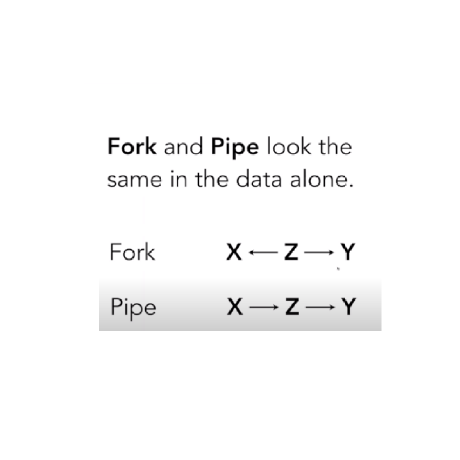MLROSe-ky: Machine Learning, Randomized Optimization and Search
Project description
mlrose-ky: Machine Learning, Randomized Optimization, and SEarch
mlrose-ky is a Python package for applying some of the most common randomized optimization and search algorithms to a range of different
optimization problems, over both discrete- and continuous-valued parameter spaces.
Project Background
mlrose-ky is a fork of the mlrose-hiive repository, which itself was a fork of the
original mlrose repository.
The original mlrose was developed to support students of Georgia Tech's OMSCS/OMSA offering of CS 7641: Machine Learning.
Later, mlrose-hiive introduced a number of improvements (for example, the Runners submodule) and bug fixes on top of mlrose, though it
lacked documentation, contained some mysterious bugs and inefficiencies, and was unmaintained as of around 2022.
Today, mlrose-ky introduces additional improvements and bug fixes on top of mlrose-hiive. Some of these improvements include:
- Added documentation to every class, method, and function (i.e., descriptive docstrings, strong type-hints, and comments)
- New documentation available here: https://nkapila6.github.io/mlrose-ky/
- Increased test coverage from ~5% to ~90% (and still aiming for 100% coverage)
- Actively being maintained
- Fully backwards compatible with
mlrose-hiive - Optimized Python code with NumPy vectorization
- Optimized algorithm implementations, including a bug fix for Random Hill Climb (TODO: rhc.py:126)
Main Features
This repository includes implementations of all randomized optimization algorithms taught in the course, as well as functionality to apply these algorithms to integer-string optimization problems, such as N-Queens and the Knapsack problem; continuous-valued optimization problems, such as the neural network weight problem; and tour optimization problems, such as the Travelling Salesperson problem. It also has the flexibility to solve user-defined optimization problems.
Randomized Optimization Algorithms
- Implementations of: hill climbing, randomized hill climbing, simulated annealing, genetic algorithm, and (discrete) MIMIC;
- Solve both maximization and minimization problems;
- Define the algorithm's initial state or start from a random state;
- Define your own simulated annealing decay schedule or use one of three pre-defined, customizable decay schedules: geometric decay, arithmetic decay, or exponential decay.
Problem Types
- Solve discrete-value (bit-string and integer-string), continuous-value, and tour optimization (travelling salesperson) problems;
- Define your own fitness function for optimization or use a pre-defined function.
- Pre-defined fitness functions exist for solving the: One Max, Flip Flop, Four Peaks, Six Peaks, Continuous Peaks, Knapsack, Travelling Salesperson, N-Queens, and Max-K Color optimization problems.
Machine Learning Weight Optimization
- Optimize the weights of neural networks, linear regression models, and logistic regression models using randomized hill climbing, simulated annealing, the genetic algorithm, or gradient descent;
- Supports classification and regression neural networks.
Project Improvements and Updates
The mlrose-ky project is undergoing significant improvements to enhance code quality, documentation, and testing. Below is a list of tasks
that have been completed or are in progress:
-
Fix Python Warnings and Errors: All Python warnings and errors have been addressed, except for a few unavoidable ones like "duplicate code." ✅
-
Add Python 3.10 Type Hints: Type hints are being added to all function and method definitions, as well as method properties ( e.g.,
self.foo: str = 'bar'), to improve code clarity and maintainability. ✅ -
Enhance Documentation: NumPy-style docstrings are being added to all functions and methods, with at least a one-line docstring at the top of every file summarizing its contents. This will make the codebase more understandable and easier to use for others. ✅
-
Increase Test Coverage: Tests are being added using Pytest, with a goal of achieving 100% code coverage to ensure the robustness of the codebase.
-
Resolve TODO/FIXME Comments: A thorough search is being conducted for any TODO, FIXME, or similar comments, and their respective issues are being resolved.
-
Optimize Code: Vanilla Python loops are being optimized where possible by vectorizing them with NumPy to enhance performance.
-
Improve Code Quality: Any other sub-optimal code, bugs, or code quality issues are being addressed to ensure a high standard of coding practices.
-
Clean Up Codebase: All commented-out code is being removed to keep the codebase clean and maintainable. ✅
Installation
mlrose-ky was written in Python 3 and requires NumPy, SciPy, and Scikit-Learn (sklearn).
The latest version can be installed using pip:
pip install mlrose-ky
Once it is installed, simply import it like so:
import mlrose_ky as mlrose
Documentation
The official mlrose-ky documentation can be found here.
A Jupyter notebook containing the examples used in the documentation is also available here.
Licensing, Authors, Acknowledgements
mlrose-ky was forked from the mlrose-hiive repository, which was a fork of the original mlrose repository.
The original mlrose was written by Genevieve Hayes and is distributed under
the 3-Clause BSD license.
You can cite mlrose-ky in research publications and reports as follows:
- Nakamura, K. (2024). mlrose-ky: Machine Learning, Randomized Optimization, and SEarch package for Python. https://github.com/knakamura13/mlrose-ky/. Accessed: day month year.
Please also keep the original authors' citations:
- Rollings, A. (2020). mlrose: Machine Learning, Randomized Optimization and SEarch package for Python, hiive extended remix. https://github.com/hiive/mlrose. Accessed: day month year.
- Hayes, G. (2019). mlrose: Machine Learning, Randomized Optimization and SEarch package for Python. https://github.com/gkhayes/mlrose. Accessed: day month year.
Thanks to David S. Park for the MIMIC enhancements (from https://github.com/parkds/mlrose).
BibTeX entries:
@misc{Nakamura24,
author = {Nakamura, K.},
title = {{mlrose-ky: Machine Learning, Randomized Optimization and SEarch package for Python}},
year = 2024,
howpublished = {\url{https://github.com/knakamura13/mlrose-ky/}},
note = {Accessed: day month year}
}
@misc{Rollings20,
author = {Rollings, A.},
title = {{mlrose: Machine Learning, Randomized Optimization and SEarch package for Python, hiive extended remix}},
year = 2020,
howpublished = {\url{https://github.com/hiive/mlrose/}},
note = {Accessed: day month year}
}
@misc{Hayes19,
author = {Hayes, G.},
title = {{mlrose: Machine Learning, Randomized Optimization and SEarch package for Python}},
year = 2019,
howpublished = {\url{https://github.com/gkhayes/mlrose/}},
note = {Accessed: day month year}
}
Collaborators

Nikhil Kapila |

Kyle Nakamura |

Edwin Mbaabu |
Contributors
Project details
Release history Release notifications | RSS feed
Download files
Download the file for your platform. If you're not sure which to choose, learn more about installing packages.
Source Distribution
Built Distribution
File details
Details for the file mlrose_ky-1.1.4.tar.gz.
File metadata
- Download URL: mlrose_ky-1.1.4.tar.gz
- Upload date:
- Size: 83.4 kB
- Tags: Source
- Uploaded using Trusted Publishing? No
- Uploaded via: twine/5.1.1 CPython/3.11.9
File hashes
| Algorithm | Hash digest | |
|---|---|---|
| SHA256 | f8d6f5589fc4996468c6e7d17a4b8eeb11433cc6cebe007cf761a21b7c471e81 |
|
| MD5 | 98e4fe131ffa63c1455e6f195bb24e7a |
|
| BLAKE2b-256 | a5e16c9c6562bd10878c0f437dc5fe3be8f38ffb14b5bf5fa28eb9698a935f88 |
File details
Details for the file mlrose_ky-1.1.4-py3-none-any.whl.
File metadata
- Download URL: mlrose_ky-1.1.4-py3-none-any.whl
- Upload date:
- Size: 134.5 kB
- Tags: Python 3
- Uploaded using Trusted Publishing? No
- Uploaded via: twine/5.1.1 CPython/3.11.9
File hashes
| Algorithm | Hash digest | |
|---|---|---|
| SHA256 | 83f6122efac4b2dc082d950ea29159ea4c6965d250ea981fc31fdfc8fd8f0674 |
|
| MD5 | 69b74bb615653f01367afddded5ee2f4 |
|
| BLAKE2b-256 | 058eeee43f912da1583289fdad2f0b078936a4a8d3955e01a40ac7c6f876ce46 |





































